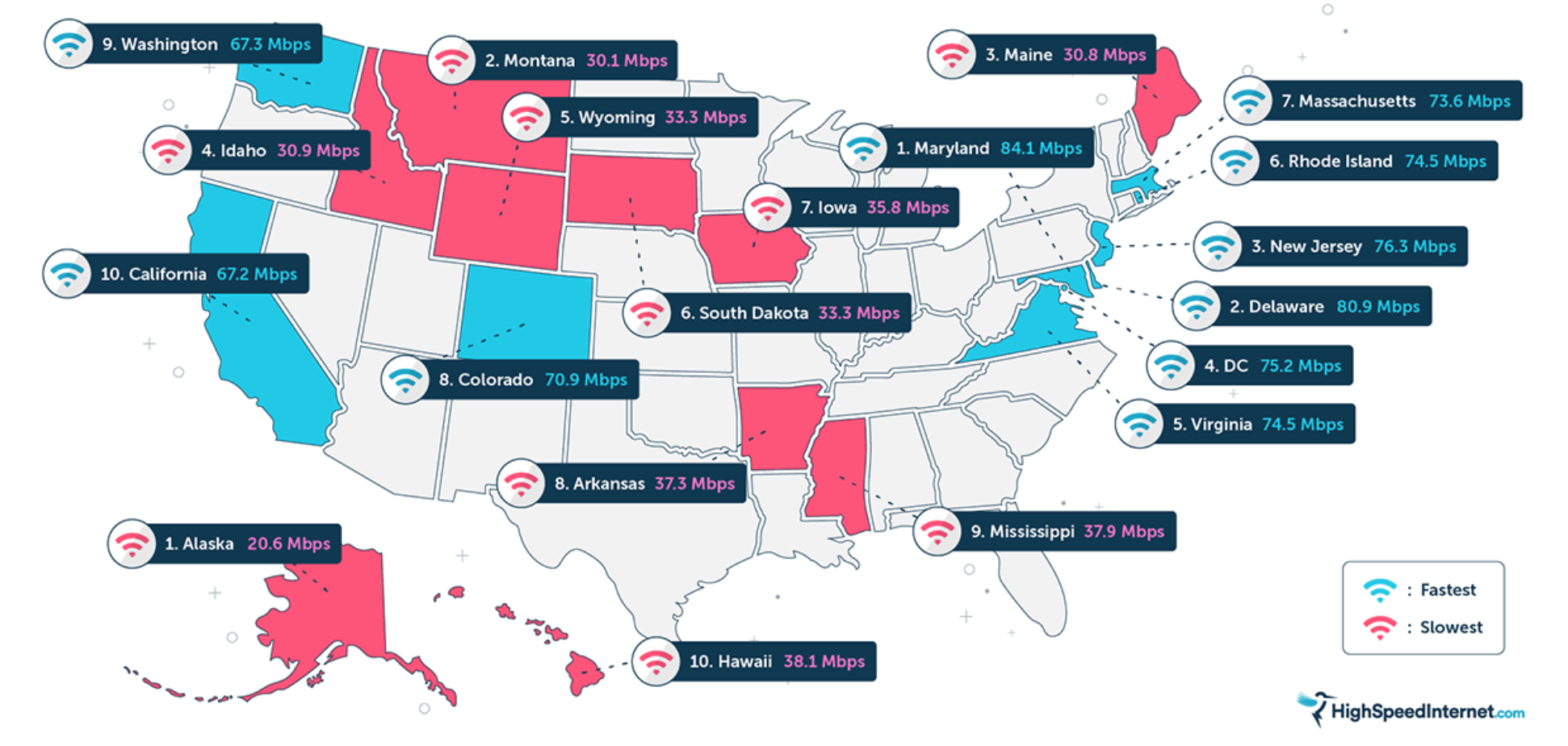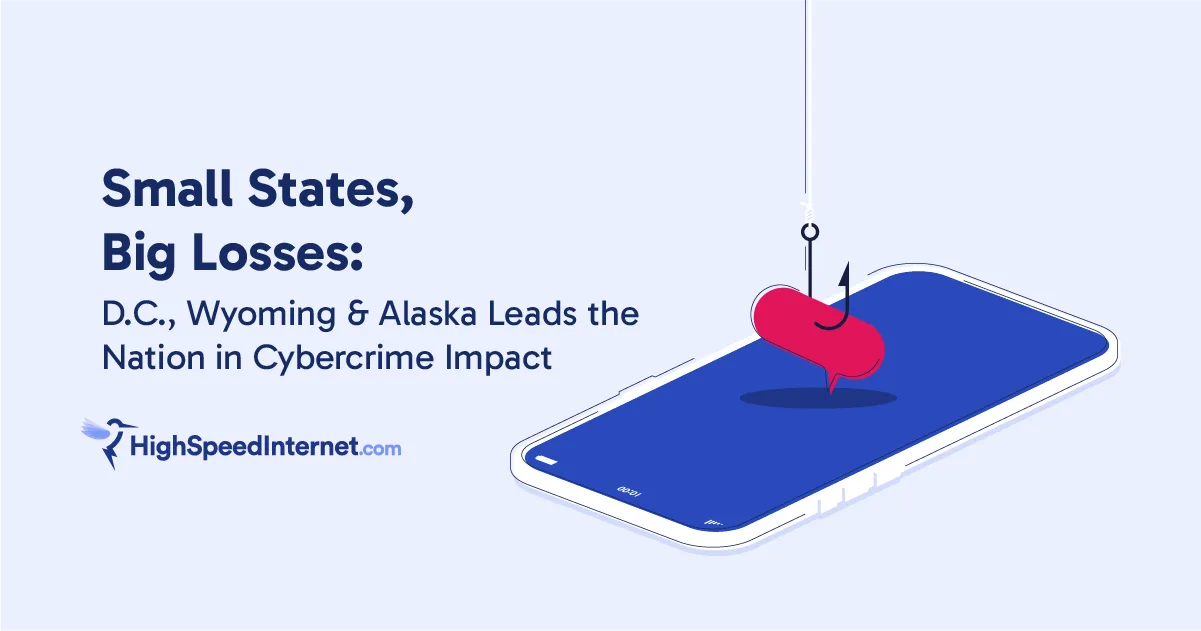The 10 Fastest and Slowest States for Internet
Oct 13, 2020 | Share
Industry Exclusive/Entertainment

Wondering where internet speeds are the fastest? Or maybe you want to avoid the states where loading websites is like watching paint dry? We can help.
We analyzed over three million speed tests taken on HighSpeedInternet.com to find out which states have the fastest—and slowest—average internet speeds. Here’s what we found.
States with the fastest average internet speeds:
- Maryland – 84.1 Mbps
- Delaware – 80.9 Mbps
- New Jersey – 76.3 Mbps
- D.C. – 75.2 Mbps
- Virginia – 74.5 Mbps
- Rhode Island – 74.5 Mbps
- Massachusetts – 73.6 Mbps
- Colorado – 70.9 Mbps
- Washington – 67.3 Mbps
- California – 67.2 Mbps
States with the slowest average internet speeds:
- Alaska – 20.6 Mbps
- Montana – 30.1 Mbps
- Maine – 30.8 Mbps
- Idaho – 30.9 Mbps
- Wyoming – 33.3 Mbps
- South Dakota – 33.3 Mbps
- Iowa – 35.8 Mbps
- Arkansas – 37.3 Mbps
- Mississippi – 37.9 Mbps
- Hawaii – 38.1 Mbps
Methodology
Our data analysts at HighSpeedInternet.com analyzed two million speed test results. They took the average of every city in the US and ranked them from fastest to slowest.
What is a good internet speed?
A good internet speed for you depends on a lot of things, including your internet plan, how many people use your connection, and what type of internet you have. Our very general recommendation is 10 Mbps of download speed for every person who uses your internet connection. Some people need less and others want more, but that’s our basic guideline.
For more specifics on good internet speeds and a personalized speed recommendation, check out our How Much Speed Do You Need? tool.
Speeds to expect from different types of internet
| Typical speed range | Max speeds up to | More information | |
|---|---|---|---|
| DSL | 10-25 Mbps | 100 Mbps | Learn more |
| Cable | 50-100 Mbps | 1,000 Mbps | Learn more |
| Fiber | 100+ Mbps | 1,000 Mbps+ | Learn more |
| Fixed-wireless | 15-25 Mbps (3-5 Mbps after data cap) | 100 Mbps | Learn more |
| Fixed-wireless | 20-30 Mbps | 1,000 Mbps | Learn more |
With any type of internet connection, the thing that should affect your speeds the most is the plan you’re signed up for. But different types of internet each have their own speed capabilities.
Currently, fiber is the fastest and most reliable connection type, but cable internet can also provide fast internet speeds. Both are better than DSL and satellite internet at consistently delivering promised speeds, according to the Federal Communications Commission’s Eighth Measuring Broadband America Report.
While satellite internet, DSL, and fixed-wireless internet can reach speeds up to 100 Mbps or more, speeds that fast are more of an exception than the typical experience with these connection types.

Author - Kristin Cooke
After graduating with a degree in English from the University of Utah, Kristin learned to geek speak while working as a technical recruiter, interviewing software developers and tech companies. For over 20 years, she has created award-winning content for technology, health, and finance companies. Kristin is an advocate for affordable internet for all and writes about rural internet solutions, satellite internet news, and tech products at SatelliteInternet.com. Her work has been featured in New York Post, PCMag, Forbes, Business Insider, Telecompetitor, Space.com, and The Benton Institute for Broadband & Society.
Editor - Cara Haynes
Cara Haynes has been editing and writing in the digital space for seven years, and she's edited all things internet for HighSpeedInternet.com for five years. She graduated with a BA in English and a minor in editing from Brigham Young University. When she's not editing, she makes tech accessible through her freelance writing for brands like Pluralsight. She believes no one should feel lost in internet land and that a good internet connection significantly extends your life span.




